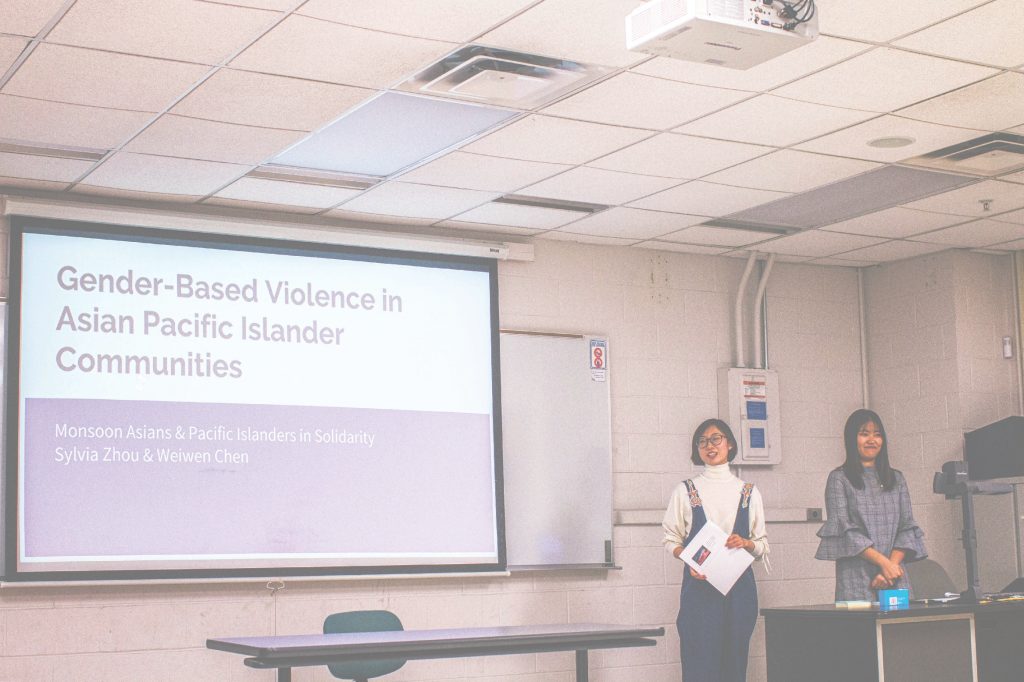April 1 is the start of Sexual Assault Awareness Month, and many students and organizations are finding ways to project their voices on the topic.
On March 29, an educational workshop, “Not Your Yellow Fever,” hosted by Delta Phi Lambda sorority, Monsoon, and the UI Counseling Service focused on sexual violence and its taboo nature in the Asian Pacific Islander community.
Yellow fever now commonly refers to the fetishization and sexualization of East Asian women by non-East Asian people.
Monsoon Asian and Pacific Islanders in Solidarity performs services for victims and survivors of sexual assault and domestic violence in the community in Iowa. It has offices in Iowa City and Des Moines but serves all 99 counties, providing assistance in 14 different languages while being free and confidential.
Asia is home to 48 countries; people who identify as Asian come from more than 50 communities and speak more than 2,000 languages. India alone has 22 official languages.
Weiwen Chen, a peer-to-peer counselor and outreach advocate at Monsoon, is one of the many Chinese students at the UI.
“As of fall 2017, 88.9 percent of all international students at the University of Iowa are Asian,” Chen said. “Most of these students come from China, India, Malaysia, and South Korea.”
RELATED: #Metoo movement founder Tarana Burke shares vision
Sylvia Zhou, also a peer-to-peer counselor and outreach advocate at Monsoon, noted that rape is even more underreported in Asian communities and international students.
“Twenty-one to 55 percent of Asian women in the United States report sexual assault in their lifetimes,” Zhou said. “This number is underreported because of the stigmatization of sex in Asian cultures.”
Students from countries such as China, the Philippines, and India provided their insight on growing up as women in Asian households and specifically how their parents relayed information regarding sex.
Apoorva Raikwar, an Indian student who also identifies as Hindu, said the main messages she received about sex were very minimal, but she has long been approached by men in sexual ways.
“I, as well as many other South Asian women I talk to, always get random DMs from random South Asian man saying ‘I love you’ and ‘I want to marry you,’ ” Raikwar said. “I’ve been receiving these types of behavior since fourth grade.”
All of the students in the discussion agreed their parents rarely taught them about sex. Most said that they had not had conversations about consent until they came to college. Some of the women said they had not been told about common women’s health topics, such as menstrual cycles.
Yasmin De Anda, a Mexican-American student, said other culturally diverse upbringings have different views toward sex. She and the other students agreed that discussions such as “Not Your Yellow Fever” are important for women of color.
“Our parents may not have been educated about the topic of sex,” De Anda said. “But us coming to these types of discussions will help us and help future generations.”



